Post Quiet Revolution Timeline

1969
FLQ bomb the Montreal Stock Exchange.Bill 63 – Loi pour promouvoir la langue française au Québec – comes into effect, requiring children who receive their education in English to acquire a working knowledge of French and immigrants to Quebec to also acquire a working knowledge of French upon arrival in Quebec.


1974
Bill 22 comes into effect under Robert Bourassa’s government, which declares French as the official language of Quebec and necessitates that all immigrants arriving in Quebec attend French language schools. This Bill is later replaced by Bill 101.


1976
In November, the Parti Québécois is elected for the first time; René Lévesque is elected as the party leader.

1977
Parti Québécois politician Camille Laurin introduces Bill 101 – the Charter of French Language in Quebec. This law makes French the official language of the Quebec government and judicial system and of the workplace, communications and instruction. Moreover, education in French becomes compulsory for all immigrants to the province including those immigrating to Quebec from within Canada.




1981
Parti Québecois is re-elected in Quebec.1977-1981: Approx. 151,000 English-speaking Quebecers move out of Quebec, resulting in the largest mass exodus in the province’s history.


1982
Alliance Quebec, an Anglophone Quebecer activist group forms in an attempt to rally for English-speaking rights and interests in Quebec.

1984
Parti-Québécois implodes when René Lévesque decides to focus more on Quebec governance than the issue of sovereignty, which in turn angers the extreme separatists in Québec. Lévesque is forced to resign.



1987
Meech Lake Accord is agreed to by federal and provincial governments but is not ratified.René Lévesque dies.


1988
Alliance Quebec contests Bill 101’s clause that English language signs are prohibited in Quebec and the Supreme Court of Canada rules that French must be the predominant language used on all signs in the Province of Quebec.


1991
Lucien Bouchard, along with a few former Progressive Conservative and Liberal Members of Parliament form Quebec form the federal political party “Bloc Québécois” to help protect Quebec’s interests in the House of Commons in the wake of the defeat of the Meech Lake Accord.


1993
Brian Mulroney resigns as Prime Minister and is succeeded by Jean ChrétienBill 86 passes, which modifies the Charter of the French Language, to allow the use of English on outdoor public signs in Quebec, as long as French is predominant


1994
The Parti-Québécois is re-elected and is lead by Jacques Parizeau as Premier.Alliance Quebec weakens and does not inspire the Anglophone community to counter-act the PQ governments proposed referendum.



1996
Robert Bourassa dies.Lucien Bouchard succeeds Jacques Parizeau as premier of Quebec.
1991-1996: Approx. 68,681 English-speaking Quebecers move out of Quebec.


1997
An amendment to the Constitution is made to allow for linguistic rather than confession (Catholic or Protestant) school boards in Quebec.





2005
Bernard Landry resigns as leader of Parti Québécois and is succeeded by André Boisclair.Alliance Quebec disintegrates and closes down.




2012
Parti-Québécois is re-elected as a minority government in Quebec and Pauline Marois becomes Premier.

2013
The Parti Québécois proposes Bill 14, which sought to revoke the bilingual status of any small businesses and municipality with an English-language population dropping below 50% of the total. This bill caused major upset among the English-speaking population in Quebec and a rally was held downtown in protest in Fall 2013.






